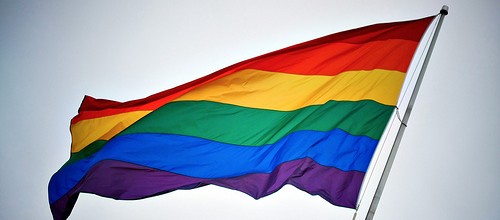
Disagreeing Without Being Disagreeable
This is the third and final guest blog post by my friend Gary Buterbaugh.
I find that I am a part of two VERY different communities. One is the church – I became a Christian at an early age and have been very involved in the church since my teen years. I do not endorse everything the church does and since the church is such a diverse organization, I do not feel that I can speak for the church as a whole.
The other community is the gay community. I have never been active in this community and like to say that I have only visited it. I have not had a commitment to the gay community’s agenda nor have I been involved in a gay relationship at any point in time. I am also in disagreement with much of what the radical gay community says, does and represents.
However, by nature of my struggle since my teen years with same-sex-attraction (SSA), and involvement for many years in homosexual activity, I am in fact part of that community. In that community I readily identify with other gays and lesbians who have experienced God’s grace and seen His redemptive power in their lives. As a member of both communities, I think I am in a unique position to identify what I see as those issues that the two communities should be able to most easily agree on and those which they would probably most easily disagree on.
Both communities agree to the basic premise that all persons should be treated with respect, although many within both communities frequently use language and slurs to demean those who hold views different than their own. If the church is to have significant ministry in the gay community to proclaim the good news that Jesus offers forgiveness of sins and wholeness, it must begin by asking forgiveness for the way it has treated individuals within the gay community. Where individuals and local churches have done this, God’s grace has been able to bring healing.
But the gay community routinely labels all evangelical Christians and the churches to which they belong as homophobic and hateful. This is not only not helpful, but untrue. There are a few who deserve this label, but most Christians harbor no ill feeling towards gay people; they simply do not know what to say (or not say) and worry that their actions and words might be taken as offensive or ridiculed.
Both communities should also be able to agree that because of discrimination on the part of others, as well as personal internal conflict, those who deal with SSA and homosexuality have a special need to be loved and understood. (The high suicide rates among teens who deal with homo-sexuality are widely reported.) The church has not always treated those who deal with SSA and homosexuality with the same love that God showed when He gave His only Son. I believe the church needs to repent of this.
But there are several things on which both communities may never agree upon. This does not mean they cannot respect those in the other community.
- The church says that there are things that are right and things that are wrong, and that the Bible speaks clearly on sexual issues. The gay community is more likely to believe that right and wrong is relative and that sex is the way to express love and experience pleasure.
- Many in the gay community (all in the more radical gay community) believe that children should be taught about the gay lifestyle while most in the church believe that children should be taught about moral values and sexual issues in the home and church.
- The church would lean towards beliefs that homosexual behavior is an expression of one’s sinful state. The gay community would lean toward the belief that individuals are born gay.
- The gay community would tend to think that it is okay to act-out on SSA feelings (although some may say this should be done within the confines of a committed relationship). The church teaches that sex outside marriage between a man and a woman is both sinful and destructive for the individuals involved and the institution of the family.
- The church believes that God has the power to change. The gay community would be more likely to believe that there is no need for change.
- The church sees God primarily as a God of love, love is His very essence. The gay community is more likely not to describe God (and especially His church) as being loving because of the struggle they have experienced.
There is a good chance that we will always disagree on these issues. But as a member of both communities, I can’t say strongly enough that everyone and their opinions need to be respected, and their right to speak them needs to be upheld!
banner photo by Charlie Nguyen – CC BY 2.0

